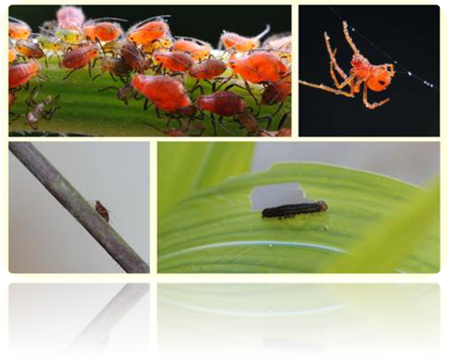Plants have co-evolved with insect herbivores for hundreds of millions of years and have elaborate defense systems against the attack from herbivores. Moreover, insects also cause large economical loss each year in crop production and environmental-friendly pest control is one of the important aspects of modern agriculture.
 Using several model plant species, such as soybean (Glycine max), wild tobacco Nicotianaattenuata, cultivated tobacco N. tabacum, and Arabidopsis thaliana, and chewing and sucking insects, we intend to answer the following research questions:
Using several model plant species, such as soybean (Glycine max), wild tobacco Nicotianaattenuata, cultivated tobacco N. tabacum, and Arabidopsis thaliana, and chewing and sucking insects, we intend to answer the following research questions:
1) How do plants sense the attack of insects?
2) Which genes are involved in herbivory-induced signal transduction, and how do they execute their functions?
3) Which plant secondary metabolites are induced by herbivore feeding and have anti-herbivore functions? Which genes encode their biosynthetic enzymes?
Research objective: To understand the molecular mechanisms by which plants modulate their resistance to herbivores, and to develop novel insect control strategies using non-toxic plant-derived chemicals and genetically engineering or breeding.